
The 2nd album for this quartet, with Daniele Martini on saxophones, Giovanni di Domenico on piano, Goncalo Almeida on doublebass, and Joao Lobo on drums, for an album of slowly building free improv starting in a Necks mode and developing into frenetically lyrical passages, a great blend of modern and traditional approaches to free jazz.
In Stock
Quantity in Basket: None
Log In to use our Wish List
Shipping Weight: 5.00 units
EU & UK Customers:
Discogs.com can handle your VAT payments
So please order through Discogs
Sample The Album:
Daniele Martini-saxophones
Giovanni Di Domenico-piano
Goncalo Almeida-doublebass
Joao Lobo-drums
Click an artist name above to see in-stock items for that artist.
UPC: 5609063402957
Label: Creative Sources
Catalog ID: Cs295
Squidco Product Code: 21575
Format: CD
Condition: New
Released: 2015
Country: Portugal
Packaging: Jewel Case
Recorded July 2014, Brussels
"Not exactly prolific this band: their first album "And The Missing R" dates from 2008 already, and now, seven years later we get their sophomore album, and that is many years too late, but their music is great. The band still consists of Belgian-Italian Daniele Martini on tenor sax, Belgian-Italian pianist Giovanni di Domenico, Portuguese bassist Gonćalo Almeida who resides in Rotterdam, and Portuguese drummer Jočo Lobo.
The first track, "Non Negative Python", is a slow intimate and intense piece, that starts with a minimalst piano intro with sparse notes and without clear rhythm, bass and drums limiting themselves to add accents and color, creating an eery yet gentle atmosphere. Then after some eight minutes, the tenor joins for slow wailing sounds, with sustained notes, increasing the tension even more, encouraging drums and bass to become adventurous and investigative, and the piano's repetitive percussive almost one-chord hammering changes the context again, forcing the sax to become repetitive too, and the whole piece turns again heads to tail, with the eery yet gentle piano intro ending the long piece.
"Eprobly Fowler" starts with completely suppressed sounds, like they're trying to escape from somewhere, but are prevented from doing so, giving a kind of suffocating feeling to the listener, yet gradually bass and drums emerge from the background, offering some sounds, and then the piano takes over halfway, for solo, then joined by the rest of the band, with a strong rhythmic pulse that suddenly releases the energy that was waiting to erupt.
The album ends with "Monogamy Frightful", again a very intense and fierce workout, that lasts 'only' six minutes, yet the band goes at it with full energy and power.
Again, one wonders why it takes so long for a band this good to publish new albums. They don't lack the creativity or the energy or inspiration to do so. True, the musicians have each individually been quite prolific lately as leaders or as members of various bands, so then can be forgiven, as long as they don't forget that Tetterapadequ also exists!"-Stef, The Free Jazz Collective
Get additional information at The Free Jazz Collective
Artist Biographies
• Show Bio for Daniele Martini "Born in Rome and based in Brussels since 2007 Daniele Martini is a polyvalent saxophone player active in different musical fields. With a solid career made of performances around the globe he had the opportunity to perform with some amazing musicians, and has lately created his own quartet where he is joined by an outstanding rhythm section." ^ Hide Bio for Daniele Martini • Show Bio for Giovanni Di Domenico "Giovanni Di Domenico, pianist, performer, composer, was born in Rome on the 20th July 1977, a significantly tempestuous period in socio-political terms, featuring hostile polarizations and an ostensive paramilitarism, mutinous ideological confrontations and bloody terrorist attacks, rendered infamous in the description 'Years of Lead'. In that particularly caustic summer, the so-called 'Movement of 1977', non-aligned, without any ties to the Parliament and non-violent, broke into the scene of prevalent conspiracy-steeped paranoia condemning the repressive, discriminatory and authoritarian tendencies of the Italian State and demanding equality for minorities and further civil rights. The coinciding liberalization of the media market, putting an end to RAI's monopoly, further defined this period as the prime moment for pirate radio, with the consequence of a libertarian fragmentation of youth culture, epitomised by punk. One could argue that Giovanni, self-taught until the age of 24, inherited - in philosophy, politics and artistically - the most benign and affirmative traits of that period, diversifying his action in the context of a recently unified Europe, promoting improbable connections, exploring varied geographies, comfortably manoeuvring aesthetical fringes and making a commitment to live performance at its most liberating and engaging. Surprisingly, the path that lead him to that point had an unexpected detour: following his father's consecutive assignments as a civil engineer he actually lived out his first decade in Africa - until he was five in Libya, from then until his eight anniversary in the Cameroons and until ten in Algeria. His far off native country was not synonymous with civil unrest as much as with opera, whose arias he would memorize with his siblings in order to practice the language and provide some family entertainment. The condition of expatriate had a strong influence in his education - he clearly remembers the calls of the muezzin, the sound of exotic musical instruments in local markets, the ritualistic expression music took in the streets of Yaoundé, or the songs he heard from his nanny in the Cameroons. When he finally enrolled in music school - majoring in 'jazz piano'- he further built on an encyclopedic technique; rhythm, harmony and tone are informed by non-western traditions yet equally sensitive to Debussy's "Préludes", Luciano Berio's "Sequenzas", to the 'ambi-ideation' heard in Borah Bergman's Soul Note recordings, Cecil Taylor's polissemic density, Paul Bley's bruised transparency and of course, the most radical manifestations stemming from the underworld of pop music, invariably tied together by his own original praxis. A distinction - one would call it generational - he shares with many of the musicians he has crossed paths with recently, artists as different as Chris Corsano, Jim O'Rourke, Akira Sakata, Tetuzi Akiyama, Okkyung Lee, Balasz Pandi, Nate Wooley, Yan Jun, John Edwards, Darin Gray, Roger Turner, Steve Noble, DJ Sniff, Terrie Ex, David Maranha, Manuel Mota, Arve Henriksen, Norberto Lobo, Peter Jacquemyn, Alexandra Grimal, John Duncan, Tony Allen, Rafael Toral or Toshimaru Nakamura. Di Domenico has founded his own label, Silent Water, home of an eclectic and occasionally unclassifiable production. He lives in Brussels." ^ Hide Bio for Giovanni Di Domenico • Show Bio for Goncalo Almeida "Gonçalo Almeida born in 1978 Lisbon, Portugal. Lives in Rotterdam, Netherlands, where he followed studies at Rotterdams Conservatorium, having studied with Heyn van Geyn, Stefan Lievestro, Marius Beets and Peter Leerdman, finishing his master degree in 2008. Plays in a variety of projects that go from modern jazz, freejazz, jazzcore and free improvisation music, having shared the stage with improvisers such has Chris Speed, Carlos Zíngaro, Wilbert de Joode, Martin van Duynhoven, Fred Lonberg-Holm, Rodrigo Amado, Tobias Klein, Jasper Stadhouders among others. Also has been working in collaboration with multi media such as video artists, modern dancers, poets, and theater makers. In the main projects that he is involved as double bass player, he has a deep input as a composer." ^ Hide Bio for Goncalo Almeida • Show Bio for Joao Lobo "From jazz to gnawa music, electro-acoustic trance to total improvisation, in solo or in a big band, collaborating on dance and theatre productions and making soundtracks for movies (including "John From" which got him a nomination for Best Original Music at the Fénix Awards 2016 in Mexico), João Lobo maintains a versatile career as a musician mainly playing the drums. He is the co-founder of Oba Loba, Going, Tetterapadequ, Norman, Mulabanda, and a proud member of Giovanni Guidi Trio, Mâäk, MikMâäk and Ghalia Benali & Mâäk: MwSOUL. He has recorded more than 40 albums, some self-produced and others for labels such as ECM, Clean Feed, CamJazz, De Werf, El Negocito, three:four records, Challenge, NEOS. He has performed and/or recorded in many countries around the world with many musicians including Enrico Rava, Marshall Allen (US), Rosewell Rudd (US), Carlos Bica (PT), Nate Wooley (US), Maalem Hassan Zogari (MA), Thomas Morgan (US), Chris Corsano (US), and collaborates intensely with Norberto Lobo (PT), Giovanni Di Domenico (IT), Lynn Cassiers (BE), Manolo Cabras (IT), Giovanni Guidi (IT) and Laurent Blondiau (BE)." ^ Hide Bio for Joao Lobo
4/9/2025
Have a better biography or biography source? Please Contact Us so that we can update this biography.
4/9/2025
Have a better biography or biography source? Please Contact Us so that we can update this biography.
4/9/2025
Have a better biography or biography source? Please Contact Us so that we can update this biography.
4/9/2025
Have a better biography or biography source? Please Contact Us so that we can update this biography.
Track Listing:
1. Non Negative Python 20:51
2. Eprobly Fowler 10:26
3. Monogamy Frightful 6:55
May 2017
Creative Sources
Improvised Music
Free Improvisation
European Improv, Free Jazz & Related
Quartet Recordings
Instant Rewards
Search for other titles on the label:
Creative Sources.


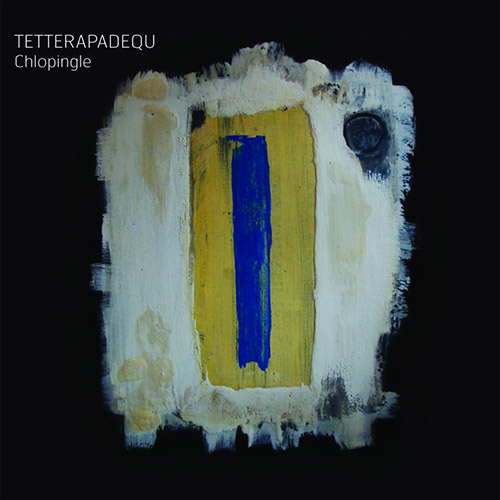

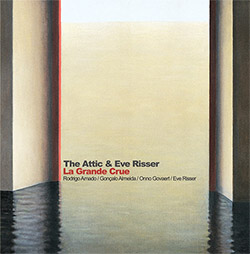
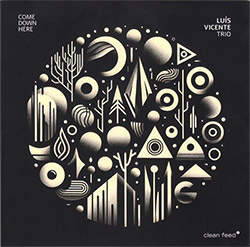
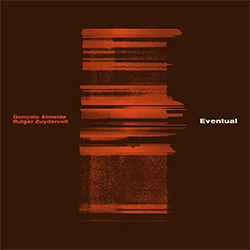
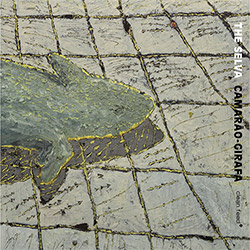
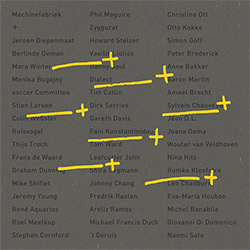

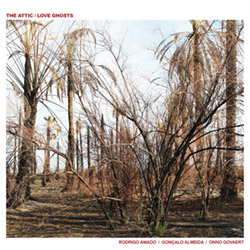
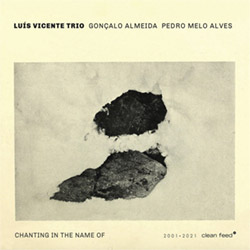
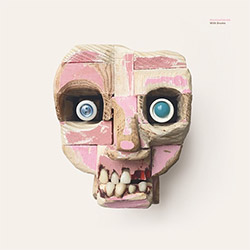
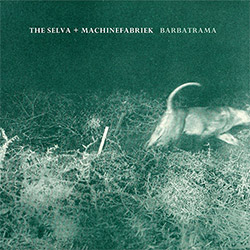

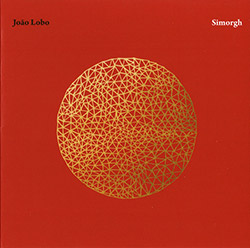
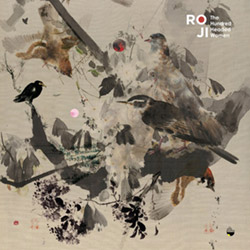



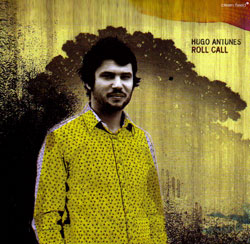
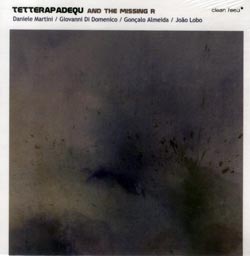
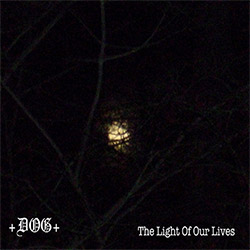
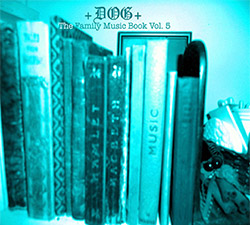

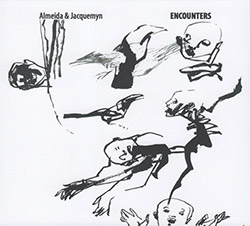
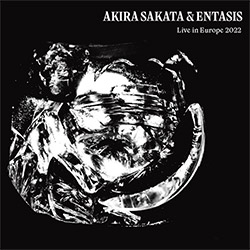

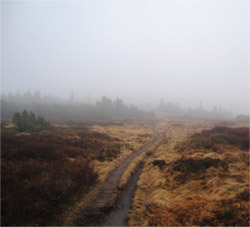



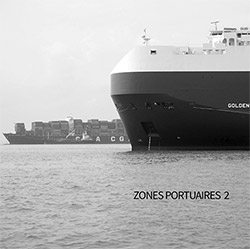
![111 (Michelle / Villamil): Live at Opus 40 [CASSETTE]](https://www.teuthida.com/productImages/misc4/35986.jpg)
![del Pino, Francisco / Charlotte Mundy: The Sea [CASSETTE]](https://www.teuthida.com/productImages/misc4/35987.jpg)

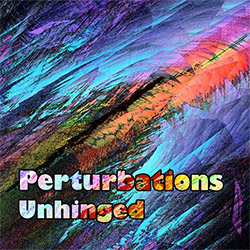

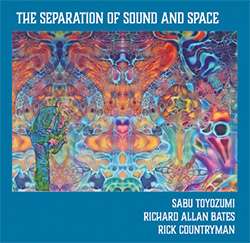


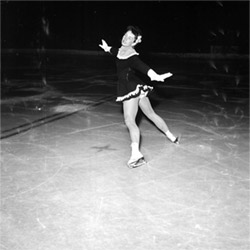
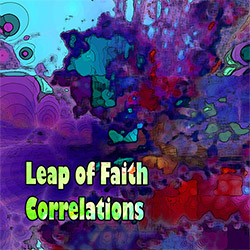

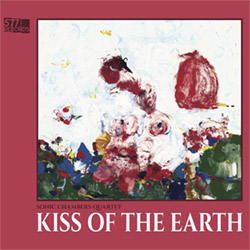

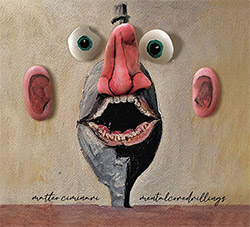
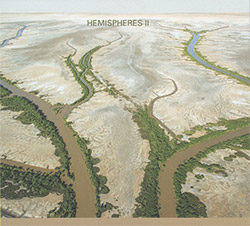
![Niblock, Phill / Anna Clementi / Thomas Stern: Zound Delta 2 [VINYL]](https://www.teuthida.com/productImages/misc4/34623.jpg)
![Yoko, Ono / The Great Learning Orchestra: Selected Recordings From Grapefruit [2 CDs]](https://www.teuthida.com/productImages/misc4/35841.jpg)

![Brotzmann, Peter / John Edwards / Steve Noble / Jason Adasiewicz: The Quartet [2 CDs]](https://www.teuthida.com/productImages/misc4/35975.jpg)
![Brotzmann, Peter / John Edwards / Steve Noble / Jason Adasiewicz: The Quartet [VINYL 2 LPs]](https://www.teuthida.com/productImages/misc4/35976.jpg)
![Thomas, Pat: The Solar Model of Ibn-Al Shatir [VINYL]](https://www.teuthida.com/productImages/misc4/36044.jpg)
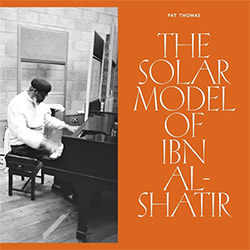



![Rodrigues, Ernesto / Nuno Torres / Guilherme Rodrigues: Whispers In The Moonlight - In Seven Movements [2CDs]](https://www.teuthida.com/productImages/misc4/35765.jpg)



![Cocks, Laura: FATHM [VINYL]](https://www.teuthida.com/productImages/misc4/36055.jpg)













![Schindler, Udo / Sandy Ewen / Damon Smith: Munich Sound Studies Vols. 4, 5 & 6 [3 CDs]](https://www.teuthida.com/productImages/misc4/35966.jpg)
![Turbulence Orchestra & Sub-Units: Smear Out the Difficulties (Double Live) [2 CDs]](https://www.teuthida.com/productImages/misc4/36048.jpg)

![Myers, David Lee : Tin Drop Tear [BOOK w/ DOWNLOAD]](https://www.teuthida.com/productImages/misc4/36030.jpg)

![Ackerley / Prymek / Turner: All Hope With Sleeping Minds [CASSETTE]](https://www.teuthida.com/productImages/misc4/35950.jpg)








![Olencki, Weston : Pearls Ground Down To Powder [VINYL]](https://www.teuthida.com/productImages/misc4/35956.jpg)
![Myers, David Lee: Oculus [2CDs]](https://www.teuthida.com/productImages/misc4/35857.jpg)


![dustsceawung: dustsceawung [CASSETTE w/ Download]](https://www.teuthida.com/productImages/misc4/35753.jpg)




![Halls of the Machine: Atmospheres For Lovers And Sleepers [CASSETTE w/ DOWNLOAD]](https://www.teuthida.com/productImages/misc4/35806.jpg)











![Zorn, John / JACK Quartet: The Complete String Quartets [2 CDs]](https://www.teuthida.com/productImages/misc4/35609.jpg)

![Lonsdale, Eden: Dawnings [2 CDs]](https://www.teuthida.com/productImages/misc4/35480.jpg)







![Sanna, Claudio: Compositori Sardi Contemporanei II [2 CDs]](https://www.teuthida.com/productImages/misc4/35317.jpg)







![Zurria, Manuel: Fame di Vento [3 CDs]](https://www.teuthida.com/productImages/misc4/35167.jpg)

![Electric Bird Noise / Derek Roddy: 8-10-22 [CD EP]](https://www.teuthida.com/productImages/misc4/35970.jpg)








![Elephant9 : Mythical River [VINYL]](https://www.teuthida.com/productImages/misc4/34624.jpg)



![Elephant9 with Terje Rypdal: Catching Fire [VINYL 2 LPs]](https://www.teuthida.com/productImages/misc4/35355.jpg)
![Deerlady (Obomsawin, Mali / Magdalena Abrego): Greatest Hits [VINYL]](https://www.teuthida.com/productImages/misc4/34876.jpg)







![Surplus 1980: Illusion of Consistency [CD]](https://www.teuthida.com/productImages/misc4/35069.jpg)
![Staiano, Moe: Away Towards the Light [VINYL + DOWNLOAD]](https://www.teuthida.com/productImages/misc4/35037.jpg)



![Caveira (Gomes / Sousa / Abras / Ferrandini): Ficar Vivo [VINYL]](https://www.teuthida.com/productImages/misc4/34643.jpg)
![Coley, Byron: Dating Tips for Touring Bands [VINYL]](https://www.teuthida.com/productImages/misc4/17906.jpg)

![Lost Kisses: My Life is Sad & Funny [DVD]](https://www.teuthida.com/productImages/misc4/lostKissesDVD.jpg)